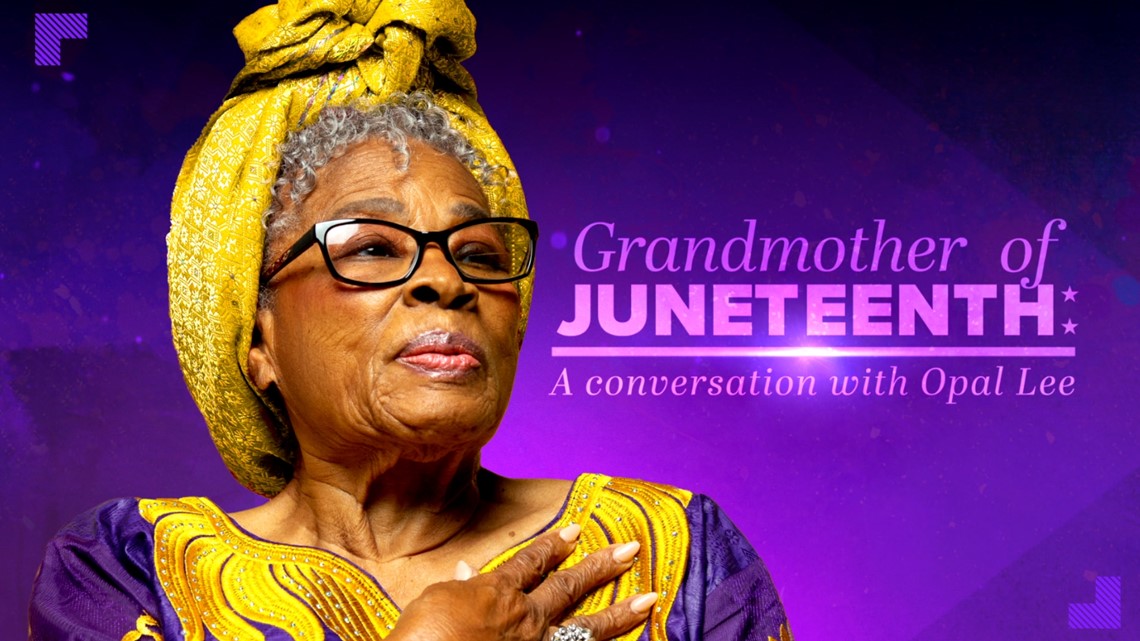Opal Lee gained national recognition in 2016 for her notable achievement of walking over 1,400 miles from Fort Worth to Washington, D.C. at the age of 89. Her purpose was to advocate for the recognition of Juneteenth as a federal holiday, a designation that was finally granted in 2021. In addition to this milestone, Lee's activism has continued to make headlines. She was nominated for a Nobel Peace Prize in 2022 and recently received the honor of having her portrait displayed in the Texas Senate chamber, making her only the second Black woman to receive this recognition. Both the University of North Texas and Wiley College, where Lee pursued her education, bestowed honorary doctorates upon her this year. Notably, efforts are underway to commemorate her contributions through the construction of an affordable housing complex named The Opal in Fort Worth and the establishment of the National Juneteenth Museum, an initiative she has long supported.
Within her residence on Fort Worth's Southside, Lee's dining table holds a collection of memorabilia spanning several decades. Noteworthy items include a photograph capturing her alongside President Biden during the signing of the Juneteenth bill and various portrait options for her display in the Texas Capitol. An embroidered silky-red stole, adorned with the names of her family members, is surrounded by cherished family photos. Each photo on her wall holds significant meaning as Lee shares stories about her loved ones and the challenges they faced. Remarkably, Lee, along with her grandparents, parents, and even her son, has experienced the loss of their homes due to fires. Even the home where the interview took place has been impacted by such an event. At 96 years old, Lee remains focused on the future, including her annual 2.5-mile walk on Juneteenth. In a recent interview with Texas Monthly, she discussed her life and career in depth.
Texas Monthly: Can you describe the moment when you felt the need to undertake the walk?
Opal Lee: There came a point when I felt a strong calling to take action. I had the privilege of meeting Dr. Ronald Myers, a remarkable individual who excels in various fields, including medicine, ministry, and jazz. Driven by his unwavering dedication to establishing Juneteenth as a nationwide holiday, I believe his passion influenced my decision to carry the torch.
TM: Were you prepared for the overwhelming support you received from your home state and across the country during your journey?
OL: No, I wasn't fully prepared. I made the decision to embark on this journey at the age of 89. I gathered with members of my church, including my pastor, musicians, a county commissioner, and school board members, who gave me a heartfelt send-off. Initially, I walked a modest distance of two and a half miles, and the following day I continued from where I left off. People began joining me, walking alongside and offering their support. We carried signs, sang songs, and genuinely had a wonderful time.
Everywhere I traveled, people treated me with extraordinary kindness. Whether it was in Shreveport, Texarkana, Little Rock, St. Louis, Denver, Colorado Springs, Chicago, or Atlanta, everyone I encountered was incredibly gracious. Although I didn't personally complete the entire 1,400-mile journey, I covered hundreds of miles. During the expedition, I appealed to President Obama to join us for a walk from the Frederick Douglass House to the Capitol. Unfortunately, my request was not fulfilled as he was in Chicago at the time. However, P. Diddy supported my cause by helping me gather an impressive 1.5 million signatures that we presented to Congress. I was elated by this accomplishment.
TM: How do you believe Americans' understanding of Juneteenth has evolved since its designation as a federal holiday two years ago?
OL: I believe that Americans are just beginning to grasp the significance of Juneteenth. My hope is that it will serve as a unifying force among people. True freedom encompasses more than just emancipation; it also involves addressing issues such as unemployment, homelessness, and hunger. There are many challenges we need to tackle, and I firmly believe that we can do so more effectively by working together.
